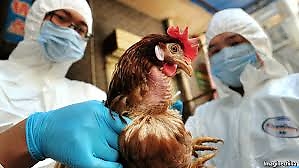Innovation has brought about many changes to society, increasing range of products and services available to consumers, meeting market demands, and even increasing life expectancy. Through new research into medication and artificial enhancements, many have been able to live longer, healthier lives. It is clear what innovation brings to a society, economy, and a nation as long as its repercussions are minimized. Responsible innovation is putting out new designs and functionalities, institutions, and conceptualizations while meeting moral obligations of the corresponding stakeholders. You will be hard-pressed to find a company/team more in accordance to this term that Synbicite; a team of scientists and entrepreneurs who understand the benefits responsible innovation can bring to society.
Synthetic biology, in its simplest terms, is the innovation of artificial parts, devices, and systems to cure major societal problems such as environmental health, pollution, and hunger.
By taking vaccines first as an example, this form of innovation can speed up processes of production and improve performance.

When the bird flu was a major problem back in 2003, production processes took at least a year before enough vaccinations were available and ready for distribution. Via synthetic biology, this process time could be almost halved and could have prevented many fatalities from occurring. Synbicite is working on solving major societal issue while keeping production of poultry stable and efficient.This can be extended to most disease vaccinations, and could be put to use with regards to the "Swine Flu" that wreaked havoc years ago.By working with a variety of stakeholders, they can anticipate environmental, economic, and societal implications of arising diseases or other problems to meet needs and concerns of the masses. Through this, Synbicite can direct their innovation processes towards public benefit and meeting key societal challenges.
It is significant to say how Synbicite is immersed in the application of responsible innovation so far, and is crucial to understand how the general public or the masses are aware and engaged in these biological projects. Responsible innovation captures all stakeholder interests, and those not involved should at least be aware. It is crucial for a team so mindful of synthetic biology, that the public must be acknowledged to help them understand the implementation and ramifications of such an innovation. Synbicite thus works hand in hand with commercialization partners to help the public understand all benefits, risks, timelines, and resource utilization, to avoid overstatements and possible conflicts. This is truly a great initiative to where the research done into this biological field can take into account the economic, environmental, and societal aspect in an effective manner.
Synbicite truly takes a right step in the direction of responsible innovation, and should be a template for similar entrepreneurs and researchers of any field. As a member of today's society, I find it extremely important to be aware of these biological inventions and understand the benefits it can bring to society when carried out responsibly. At first glance, anything artificial sounds unnerving to say the least. How can we trust it? And how do we know future repercussions and be prepared for them? These questions must be addressed to unlock the potential of synthetic innovation; and by working side by side with economic representatives, biology researches and doctors, and society can bring about benefits to all these stakeholders while at the same time, providing solutions and preparation for the future.


